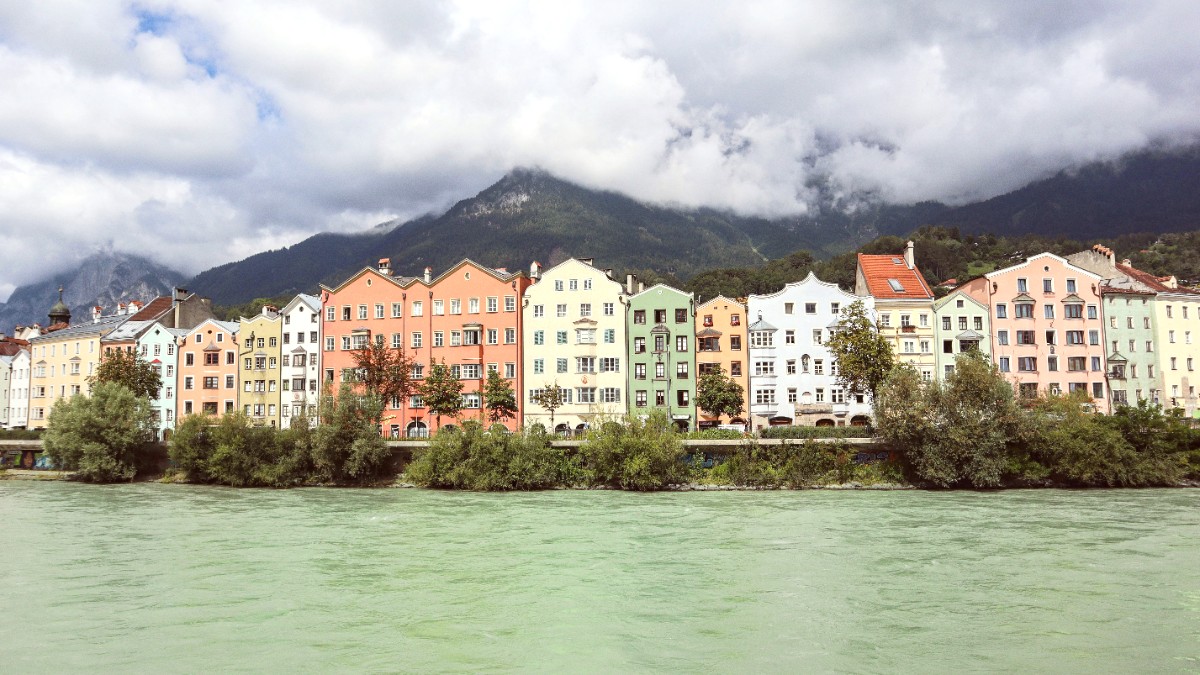
Tirol, Austria
Summer (June-August) average temperatures range from 15°C to 25°C (59°F to 77°F). Days generally feel warm with sunshine. Afternoon thunderstorms are common, especially in July and August, with short but intense downpours. Humidity stays moderate. Long daylight hours are good for extended outdoor activities.
Autumn (September-November) temperatures gradually decrease. September sees averages from 10°C-20°C (50°F-68°F), while November drops to 0°C-10°C (32°F-50°F). Precipitation builds through the season. Mornings feel crisp, with warmer layers a consideration.
Winter (December-March) is excellent for skiing, snowboarding, and other winter sports. The city hosts charming Christmas markets from late November to December 23rd, creating a festive atmosphere. Slopes are well-maintained, and snow conditions are typically good.
Accommodation prices reach their peak. Slopes and city attractions become more crowded, especially around holidays and during major ski events. Flights and other travel services also cost more. Booking far in advance is highly recommended.
High Season
Ideal for hiking, mountain biking, and various outdoor activities. Weather is pleasant for sightseeing. Mountain lifts operate.
Peak crowds gather. Accommodation prices remain high. Afternoon thunderstorms require rain protection.
April-May, September-October
Fewer crowds mean a relaxed experience. Accommodation prices offer better value. Pleasant temperatures for sightseeing.
Some mountain lifts or attractions may have limited hours. Weather can be variable.
November, Mid-March to Mid-April
Lowest prices for accommodation and flights. Minimal crowds for a peaceful city experience.
Unpredictable weather. Limited hours for some attractions. Some mountain activities may not be available.
If you plan winter sports, packing specific gear is important. This includes Waterproof ski gloves and Thermal base layers. You can rent or buy equipment upon arrival, but consider bringing personal items like base layers for comfort.
Summers, especially at high altitudes, can have intense sun exposure. Bring strong Sun protection, including sunscreen, Sunglasses, and a hat. A Lightweight rain jacket is useful for sudden afternoon showers.
December to March offers the best snow conditions and open resorts.
June to September has the most favorable weather for mountain trails.
May, June, September, and October have pleasant temperatures and fewer crowds.
Visit from late November to December 23rd for the festive atmosphere.
Check the weather forecast and webcams before heading up the Nordkette.
Austria is part of the Schengen Area, impacting entry rules for many nationalities.
Non-EU/EEA/Swiss citizens typically need a Schengen visa (Type C) for stays up to 90 days within any 180-day period. This applies unless their nationality qualifies for visa-free entry. Apply for this visa through the Austrian embassy or consulate in your home country. Start the application well in advance of your planned travel dates.
Your passport must be valid for at least three months beyond your intended departure date from the Schengen Area. It must also have been issued within the last 10 years. Your passport should have at least two blank pages for stamps.
Prices vary based on your travel style, from budget-conscious to luxury.
Austria uses the Euro (€, EUR). ATMs (Bankomat) are widely available throughout Innsbruck, including at the airport, train station, and in the city center. These machines generally offer favorable exchange rates.
Major credit and debit cards, including Visa, MasterCard, and American Express, are widely accepted in hotels, restaurants, and shops. Inform your bank of your travel plans before departure to prevent card blocking. Carrying a small amount of cash is good for smaller purchases, local markets, or very small establishments that may not accept cards.
Hostels, self-catering, public transport.
Daily Total: €85 - €155
Accommodation: €30 - €60
3-star hotels, casual dining, some attractions.
Daily Total: €185 - €335
Meals: €50 - €80
4/5-star hotels, fine dining, private transport/tours.
Daily Total: €420 - €1030+
Activities/Attractions: €70 - €150+
| Strategy | Description | Impact |
|---|---|---|
| Innsbruck Card | Highly recommended for saving on attractions and public transport. | Good value for active sightseers. |
| Supermarkets | Purchase groceries for meals from local stores like Spar or Billa. | Affordable alternative to dining out for every meal. |
| Public Transport | Use the efficient bus and tram system instead of taxis. | More economical; day pass or Innsbruck Card makes it even better. |
Innsbruck is a safe city, but understanding health and safety aspects creates a problem-free trip.
No specific vaccinations for general tourism. Ensure routine vaccinations are up-to-date.
Innsbruck is at 574m. Higher mountain excursions may lead to mild symptoms like headache or nausea.
High-altitude sun can be intense. Use broad-spectrum sunscreen, wear protective clothing, and sunglasses.
Always consult a healthcare professional for personalized recommendations.
Ticks can be present in wooded and grassy areas. Use insect repellents and check for ticks after outdoor activities. Mosquitos might be present near water bodies during summer evenings.
Austria maintains a high standard of medical care. The Universitätsklinik Innsbruck is a major facility. Pharmacies (Apotheke) offer medications and advice. Tap water is safe for drinking.
EU citizens with an EHIC access state-provided healthcare at a reduced cost. Non-EU citizens should have comprehensive travel health insurance.
LifeStraw: Consumer site for water filtration products.
Adventure Medical Kits: First aid supplies for travelers.
Pacsafe: Anti-theft bags and travel security products.
Innsbruck is a very safe city with low crime rates. Petty crime, like pickpocketing, can occur in crowded tourist areas. Remain vigilant and keep your valuables secure. No specific neighborhoods are known for high crime rates. The city center is generally safe, even at night.
Knowing emergency numbers is a must for safe travel. Keep these contacts stored in your phone and on a separate piece of paper.
112 (This number works throughout the EU for police, fire, ambulance).
Police: 133, Fire Department: 122, Ambulance: 144.
140 (Use this specifically for emergencies in the mountains).